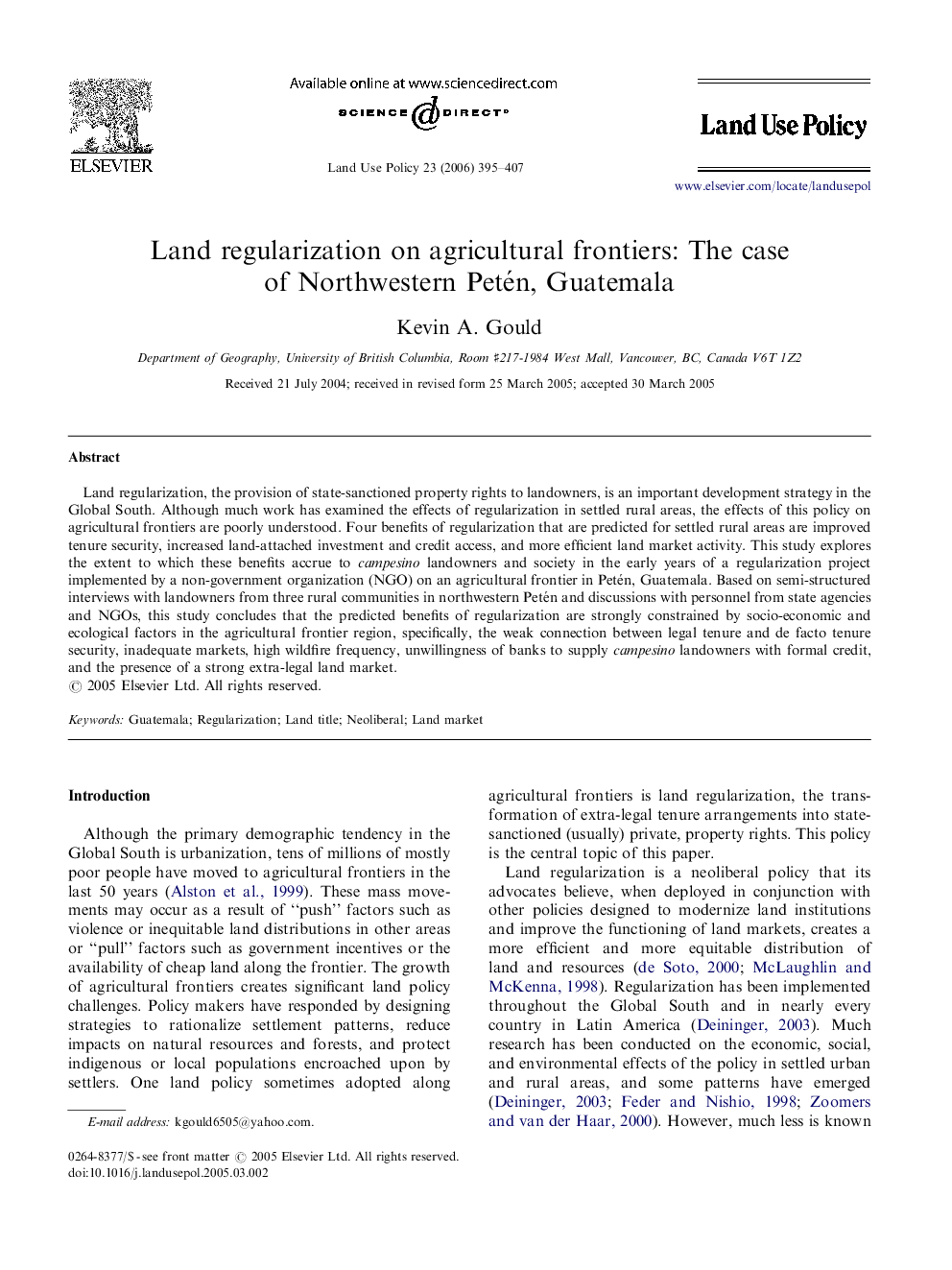| Article ID | Journal | Published Year | Pages | File Type |
|---|---|---|---|---|
| 93870 | Land Use Policy | 2006 | 13 Pages |
Land regularization, the provision of state-sanctioned property rights to landowners, is an important development strategy in the Global South. Although much work has examined the effects of regularization in settled rural areas, the effects of this policy on agricultural frontiers are poorly understood. Four benefits of regularization that are predicted for settled rural areas are improved tenure security, increased land-attached investment and credit access, and more efficient land market activity. This study explores the extent to which these benefits accrue to campesino landowners and society in the early years of a regularization project implemented by a non-government organization (NGO) on an agricultural frontier in Petén, Guatemala. Based on semi-structured interviews with landowners from three rural communities in northwestern Petén and discussions with personnel from state agencies and NGOs, this study concludes that the predicted benefits of regularization are strongly constrained by socio-economic and ecological factors in the agricultural frontier region, specifically, the weak connection between legal tenure and de facto tenure security, inadequate markets, high wildfire frequency, unwillingness of banks to supply campesino landowners with formal credit, and the presence of a strong extra-legal land market.
